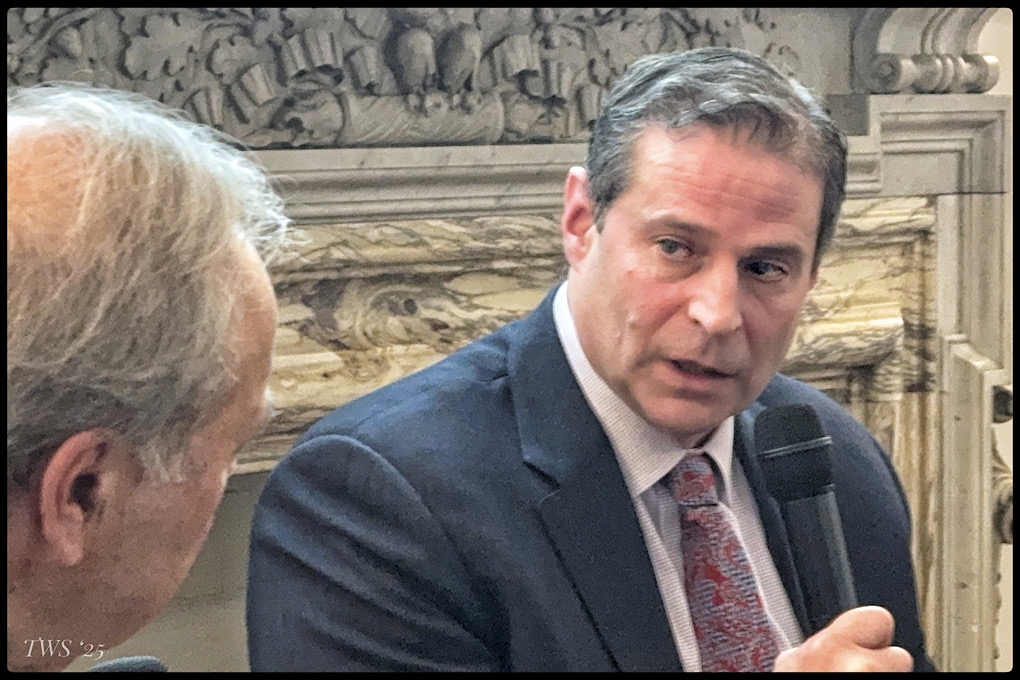The Consulate General of Italy in New York marked Made in Italy Day, celebrated annually on April 15, by hosting a panel discussion spotlighting the Italian pharmaceutical industry and its growing presence in the United States. The event brought together executives from three major companies — Bracco, Kedrion, and Menarini — to share their experiences navigating a complex global market while deepening investment in the U.S.
Representing the companies were Marco Campione, Paolo Marcucci, and Ken Hoberman, who offered a glimpse into how Italian pharmaceutical firms are expanding abroad during a period marked by economic uncertainty and policy shifts.
Italy’s pharmaceutical exports remain a cornerstone of the country’s economy, projected to reach $61.4 billion in sales by 2024. In the U.S., pharmaceuticals now rank as Italy’s second-largest export sector after mechanical equipment, with an estimated value of $12 billion — ahead of fashion, high-tech, and agribusiness.

Speaking at the event, Consul General Fabrizio Di Michele emphasized the industry’s importance not only for Italy’s economic output but also as a symbol of innovation and quality. “The pharmaceutical sector is an example of Italian excellence,” he said. “It deserves recognition for its innovation and the globally acknowledged quality of our companies, as demonstrated by their significant investments right here in the Tri-State area and across the United States.”
That spirit of expansion is embodied by the three companies featured on the panel, each of which remains family-owned — a hallmark of Italian business tradition — and has made significant strides by establishing research, production, or distribution facilities on American soil.


Marco Campione, president and CEO of Blue Earth Diagnostics — a subsidiary of Bracco Group — detailed how the company has built out a network of labs near key medical centers in North America. “We position our labs close to the sites where diagnostics are needed,” Campione said. “Once the diagnostic pathway begins, results are delivered within 24 hours, which is why we maintain a widespread presence across the U.S.”
Ken Hoberman, chief operating officer and co-founder of Stemline Therapeutics, a Menarini Group company, highlighted the benefits of working across continents. Stemline develops and distributes oncology treatments, particularly for aggressive breast cancers and rare forms of leukemia. “Being part of the Menarini Group on this side of the Atlantic allows us to deliver transformative cancer therapies worldwide while accelerating our research,” Hoberman said.
Paolo Marcucci, president of Kedrion — a company specializing in plasma-derived therapies — explained the rationale behind the group’s American expansion. “The United States is a strategic hub for scientific innovation and a key growth market for us,” he said. “Our aim is to broaden global access to therapies for people affected by rare and serious conditions.”
The discussion was moderated by veteran journalist Mario Calvo-Platero, president of the Italian Exponents Group, and also touched on the possibility of new tariffs on pharmaceuticals — a policy reportedly under consideration by President Donald Trump. While none of the panelists expressed immediate concern about the proposed tariffs, citing their U.S.-based manufacturing operations as a buffer, all acknowledged the disruptive effect of policy ambiguity.
“The uncertainty is the real issue,” Campione said. “There’s a lot of waiting right now. And that kind of limbo doesn’t help with management, and it certainly doesn’t help when you’re trying to create jobs.”












